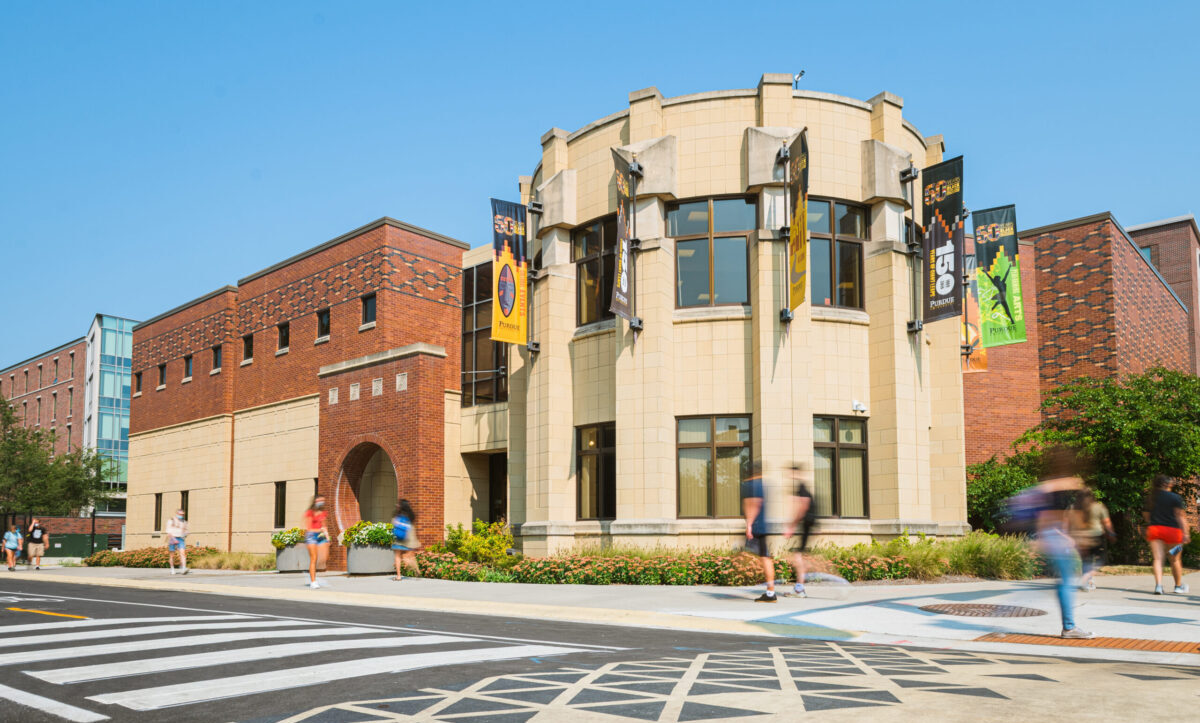Purdue hospitality alumna applies customer service, people-driven mindset as new director of Black Cultural Center
Written By: Rebecca Hoffa, rhoffa@purdue.edu

Purdue Black Cultural CenterPurdue Marketing and Communications

Anne EdwardsPhoto provided
Anne Edwards, an alumna of the Purdue University College of Health and Human Sciences’ (HHS) undergraduate and graduate programs in hospitality and tourism management, has translated her hospitality knowledge to a variety of positions, ultimately pursuing a path in higher education. Coming from Northern Illinois University’s Center for Black Studies, Edwards recently returned to Purdue as the new director of the Black Cultural Center.
Although directing cultural resource centers wasn’t on her radar while she was a student in the White Lodging-J.W. Marriott, Jr. School of Hospitality and Tourism Management, Edwards has thrived in these roles, using her customer service skills and people-driven mindset to help students learn more about themselves and their culture.
“The Black Cultural Center here is the best in the nation,” Edwards said. “It is what other people look at to glean some of the things they want to do, and who wouldn’t want to go back to a place that embodies such excellence, commitment and forward thinking?”
What led you to return to Purdue as the director of the Black Cultural Center?
I never thought I was going to work in Black cultural centers, which is funny. But once I started doing the work, I was like “I love this.” The Purdue Black Cultural Center is a very important space in the landscape of cultural center work, and I recognize that. When I came back for my campus visit, I felt like I could have a vision for this place. I saw things I could contribute. Purdue as a whole is a place that fed me and contributed a lot to my growth and development, and I wanted to be able to do the same for those coming behind me.
How has your education from Purdue HHS shaped your career?
I had an amazing experience in my academic programs in hospitality — best faculty hands-down. The work, in terms of customer service, in terms of finances and budgeting, really served me well. I have a background that really prepared me to understand how to look at things from a customer perspective while also tackling the business aspect and keeping the overall goals of the organization in mind. That’s hospitality right there.
Outside of hospitality, I was involved on campus. Those things help shape you as a leader. I was a student ambassador for the College of Health and Human Sciences, where I learned how to talk to potential students and alumni. I worked in the John Purdue Room. I did an event-planning internship. I come with a unique skill set to the area of student affairs.
How does it feel to have seen both sides of the Black Cultural Center as a student and the director?
I think when you are leading anything, your lens changes. I don’t want to lose that student lens, though. That’s the lens where you see the pixie dust. You understand what makes the space magical. I think the director’s lens challenges me to be a visionary, to not just love what I know but to also envision and imagine what has to happen to continue to press it forward. We have to continue to remain world-class in word, thought and deed. Our actions have to be backed up to and in alignment with a vision.
What is the most rewarding part of your career and why?
I think the most rewarding part has been the ability to pivot. I’ve enjoyed being able to do different things in my career: work in hospitality, work at stadiums and arenas, work in K-12 education, work at hotels, and then bring some of that back to higher education. That ability to pivot, I think, is a necessary skill in life. It gave me the confidence to really pursue what I wanted to pursue. Purdue prepared me for my pivot.
What does Black History Month mean to you?
I think it’s important to understand that sometimes we look at history as something that’s dusty, that happened, without realizing that we are constantly living history. I think Black history is so extraordinary — the stories, the experiences of people. I enjoy seeing the light bulb go off in students who are taking the lessons and learnings of history and seeing how we can apply them to present-day issues. How important it is for us to know who Black people are — not only where we come from, not only what we did, but also what we do. And a lot of that learning comes through Black history.